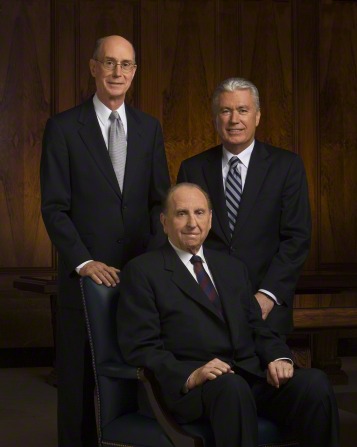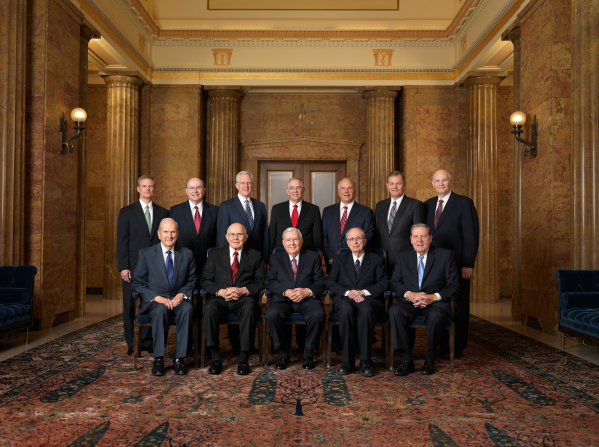In a recent article,
(fairly short and very enlightening) a moderate Muslim (Abdullahi
Ahmen An-Na’im) opines about some of the reasons many in Islam are unable to
counter the efforts of ISIS or any other radical Islamic entity. As I read the article, I was struck by a
statement this gentleman made concerning the power that some Muslims take upon
themselves in proclaiming jihad.
A
related difficulty in this whole discussion is that according to Sharia, jihad
can only be launched by a legitimate state authority.
ISIS
claims to have Islamic legitimacy, but what is the basis of that secretive
claim? Who nominated them, and why and how should the Caliph of ISIS have
authority over the global Muslim community?
Since
this authority is based on an entirely open and free process of individual
choice, ISIS’ claim may succeed to the extent it is supported by a critical
mass of Muslims.
 |
| Mohammed receiving his first revelation from Gabriel. |
He seemed to be saying that those who follow the Prophet
Mohammed are doing the best they can but without (for the lack of a better word) certified leadership in the
religion, it is impossible to find consensus on doctrine in their faith.
So, here we have a violent off-shoot of a worldwide religion
that has taken upon themselves the authority to interpret the
doctrines/principles of their faith – many times in direct contradiction to the
writings of their founder – and other times against the majority of adherents. The end result being that those who would
like to see a more peaceful application of doctrines and principles are left to
shake their heads and wring their hands because they CAN’T dispute the
interpretation of the minority.
I imagine Paul was thinking about this predicament when he said:
For the time will come when they
will not endure sound doctrine; but after their own lusts shall they heap to
themselves teachers, having itching ears; and they shall turn away their ears from
the truth, and shall be turned unto fables. (2 Tim.
4:3-4)
Paul also said this:
And he gave some, apostles; and
some, prophets; and some, evangelists; and some, pastors and teachers; for the
perfecting of the saints, for the work of the ministry, for the edifying of the
body of Christ: Till we all come in the unity of the faith, and of the
knowledge of the Son of God, unto a perfect man, unto the measure of the
stature of the fullness of Christ.
(Ephesians 4:11-13)
Without the foundations of Apostles and Prophets, the
standards, principles, doctrines, and beliefs of a religion will not
survive. They will always be affected by
the reasoning of man, without the inspiration of God.
Many religions have leaders of great strength and
capability. I am always impressed by the
Pope and his caring nature that guides his people, and many of the world. He is a good man and may have some prophetic qualities. I will leave the judgment of his calling to God. Much the same can be said for other religious leaders but, again, their position with God is difficult for me to assess.
What I do know is that we have 15 living prophets on the
earth today. They are called of God and
are men who are trying very hard to listen to the word of God.
But they ARE
men!! And, for the most part, they are old
(at least by worldly standards).
So how do
we know they won’t do what ISIS has done (not literally, but you know what I mean)?
Because they are not just ONE person. Nor are they just ONE part of the faith. No one of them has any more sway in the
decision process than the other.
These are 15 experienced men who have served faithfully for
the majority of their lives and still serve God and Christ. They have been presented to the body of the
Church (no secret members or surprise ordinations) and have been accepted in
their roles.
And nothing
happens until they all agree unanimously in their decisions. If only one is undecided or against the proposition,
it is tabled until agreement can be found.
No harboring animosities.
No political posturing.
No pouting or name-calling.
The process
makes for decisions that come a little more slowly. Nothing rash or hurried in deciding what to
do or teach.
It also makes for sound, consistent doctrine and teachings
that give a solid foundation for those who believe. There is no question when it comes to the
basic principles and beliefs of the Church of Jesus Christ of Latter-day
Saints.
Wait, I know there are some who will dispute that last
statement. We do have questions about
basic things pertaining to the gospel/Church.
But the final arbiter for what is correct is always found in what the First
Presidency and the Quorum of the Twelve teach as they speak.
As an individual member, I can interpret the doctrines as I desire,
but if my interpretation contradicts that of the 15 men who lead, I need to
reconsider what I believe. And as I interpret
by the power of the Holy Ghost, I have discovered that my understanding will be
more correct and in line with the prophets.
There must be consistency in the doctrine of any faith to
maintain peace with God. Otherwise, the
results will eventually be something like what is described in the article. Man cannot account for all the challenges
that will confront religion as the world continues to spiral.
 |
| The First Presidency |
 |
| The current Quorum of the Twelve |
The comfort of Prophets helps soften many of the challenges
of the day. Without Prophets, ISIS and
all other ungodly entities will continue to propagate. There is peace where there are True Prophets
of God and where the people listen to their counsel.
No comments:
Post a Comment